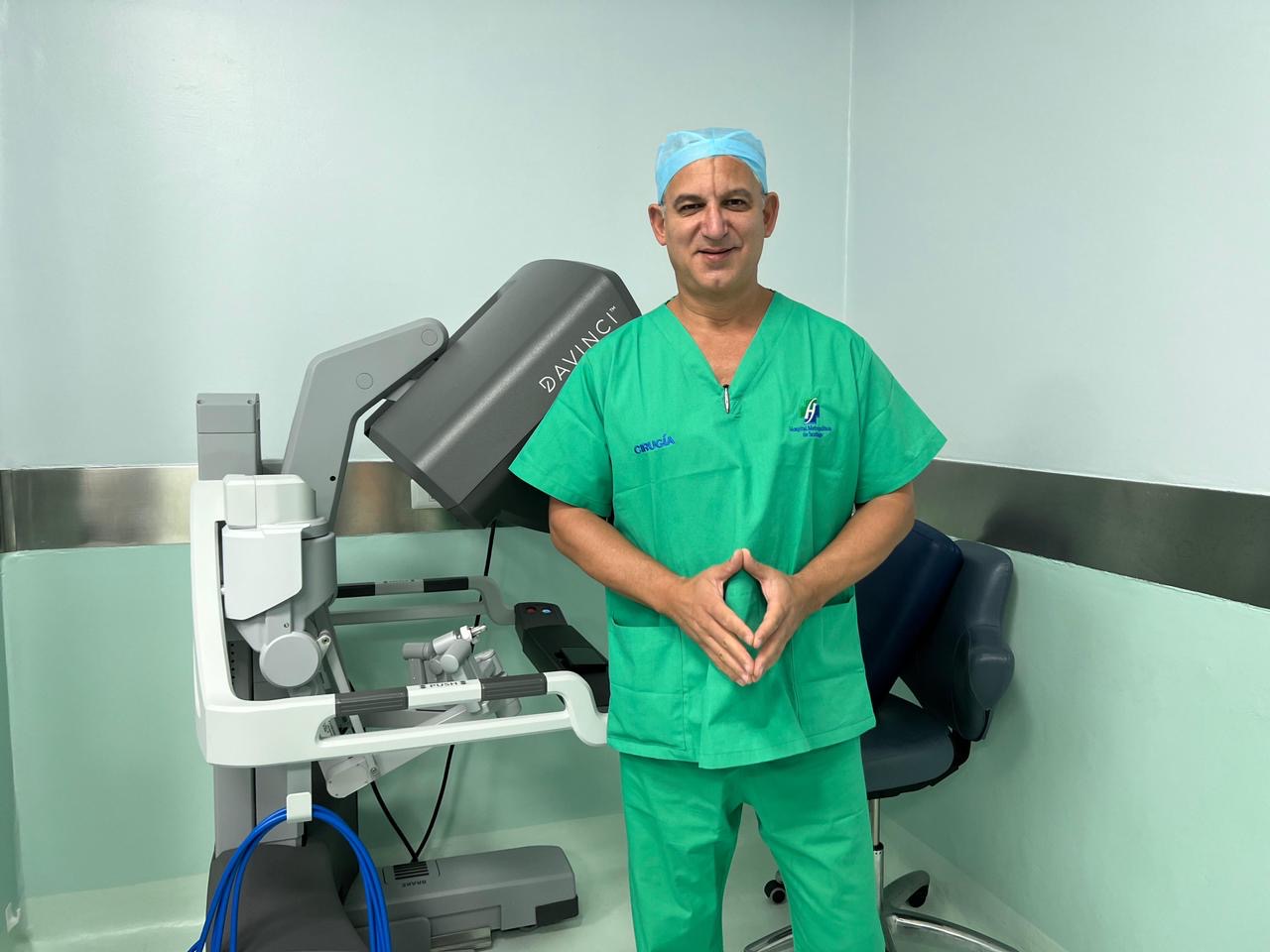Santiago .-“Blood in semen, or hematospermia, while distressing, is typically a benign and self-limiting condition. By seeking timely medical evaluation and understanding the underlying causes, men can alleviate anxiety and receive appropriate management if necessary,” said American robotic surgeon David Samadi.
Dr. Samadi explained that hematospermia is a condition that can be a distressing experience for men. It is usually benign, but it is necessary to go to the doctor for diagnosis and treatment. He recommended not to fear the condition and to pay due attention.
The specialist offered a comprehensive guide to deepen the knowledge or recognition of hematospermia, exploring its causes, diagnostic procedures, treatment options and the importance of seeking a medical evaluation.
In an article that seeks to educate about Men’s Health, the urologist explained that effective communication with the healthcare provider is essential to address concerns and ensure reproductive health. If you experience blood in semen, seek guidance from a healthcare professional without delay.
The prominent American urologist and surgeon provides specialized medical services to remove prostate cancer assisted by the most advanced technology robot. He offers his medical services at the Metropolitan Hospital of Santiago, HOMS. Dr. David Samadi is the pioneer in robotic surgery in the country.
Samadi explained that hematospermia is relatively common, especially in men under the age of 40. Despite its alarming nature, it often resolves spontaneously without medical intervention. However, for men over the age of 40 or those who experience recurrent episodes of hematospermia, it is imperative to undergo a thorough medical evaluation to rule out any underlying health issues.
The renowned urologist highlighted the following causes of Hematospermia:
A) Broken blood vessels: During erection and ejaculation, pressure changes in the reproductive tract can cause small blood vessels in the seminal vesicles or prostate to rupture, leading to hematospermia.
B) Infections and inflammation: Hematospermia can be caused by sexually transmitted infections, urinary tract infections, or inflammation of the prostate or seminal vesicles.
C) Trauma: Injuries to the genital area, including sports injuries or accidents, can cause bleeding in the semen.
D) Medical procedures: Certain medical interventions such as prostate gland biopsy or vasectomy can temporarily cause hematospermia.
E) Structural abnormalities: Polyps, obstructions, cysts or hemorrhages in the reproductive tract can also contribute to the presence of blood in the semen.
Dr. Samadi noted the importance of seeking medical evaluation when men notice blood in their semen, especially if they experience pain when urinating or ejaculating. A thorough evaluation by a health care provider should include a complete medical history, physical examination, and diagnostic testing. These tests may include urinalysis, prostate-specific antigen (PSA) testing, and imaging studies such as ultrasound or MRI to identify any underlying cause of hematospermia.
The prestigious doctor also explained the treatment options, although he affirms that in many cases, hematospermia resolves spontaneously without specific treatment.
However, for persistent or recurrent cases, treatment options may be considered: Antibiotics: If hematospermia is caused by an underlying infection, antibiotics may be prescribed to treat the infection and relieve symptoms.
Medications
In cases associated with benign prostatic hyperplasia (BPH), medications such as finasteride (Proscar) may be recommended to reduce the size of the prostate and relieve symptoms. Surgical intervention: In rare cases where structural abnormalities are identified, surgical procedures may be necessary to correct the underlying problem.
Dr. David Samadi is the Director of Men’s Health and Urologic Oncology at St. Francis Hospital on Long Island. He is a renowned and successful board-certified urologic oncologist and robotic surgeon in New York City, considered one of the leading prostate surgeons in the United States, with extensive experience in the treatment of prostate cancer and robotic-assisted laparoscopic prostatectomy.
In Santiago, Dr. Samadi is at the Samadi Robotic Institute on the 4th floor of the Santiago Metropolitan Hospital HOMS, at 809-399-0569. https://drdavidsamadi.com/es/

















